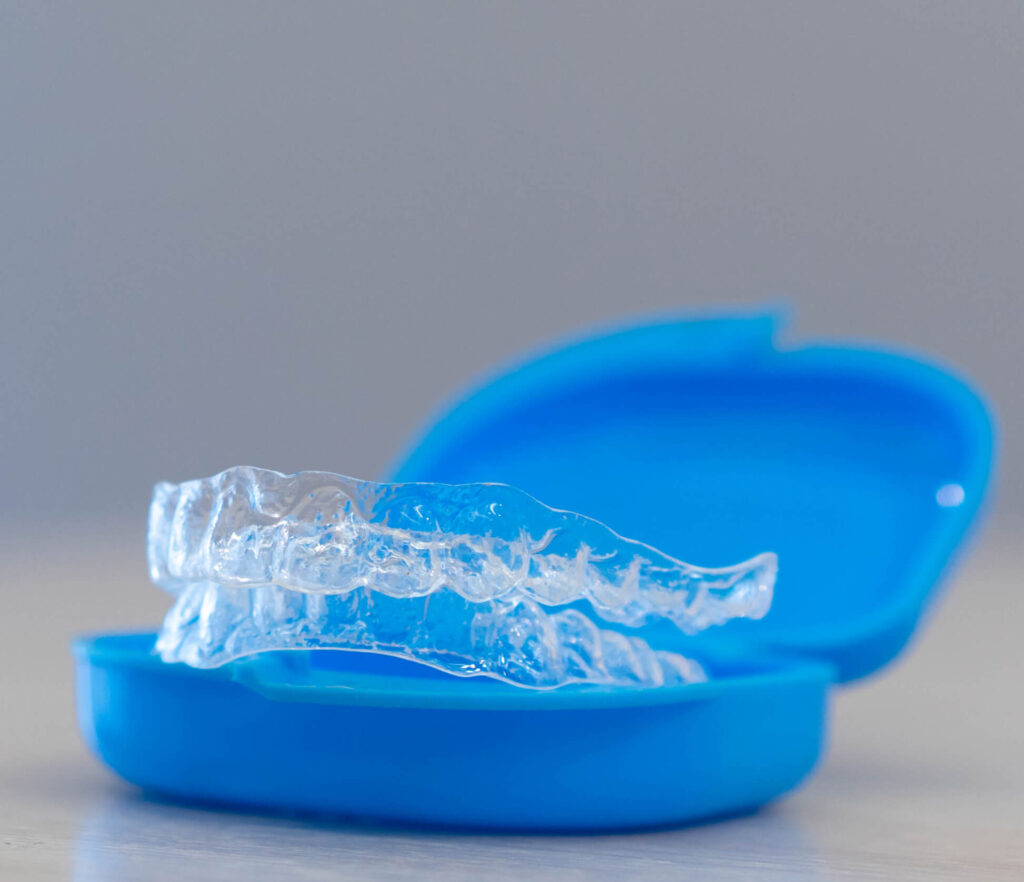
Tooth pain is one of the most common reasons people seek medical attention. In fact, according to the American Dental Association, 75% of adults experience some form of tooth pain during their lifetime. Whether it’s a sharp pain that keeps getting worse or an ache that won’t go away, a toothache is something we may have to deal with at some point in our lives. Fortunately, there are a variety of effective treatments to relieve different kinds of toothaches. Here are ten common types of toothaches and what they mean, along with tips from your Sloan Creek Dental dentist for treating various types of pain.
This type of pain is like that of a classic toothache, but it is not quite as intense. You may feel some discomfort or feel a dull ache in one tooth or several teeth, or it may radiate into your jaw area. Depending on the cause, this type of pain often comes and goes, but they’re a sign that something more serious could be wrong with your teeth or gums.
The cause can be from many reasons. It might be from a piece of food stuck in your tooth, or it could signal that you have tooth decay. If you feel a dull ache in your mouth when you chew on something, it can be a sign of your wisdom teeth coming in, nighttime bruxism, which is caused by clenching or grinding your teeth while sleeping, or you may also have an abscessed tooth if you feel pressure in your tooth when biting down on something.
What to do
Before taking any over-the-counter pain medication, floss and brush your teeth first to dislodge any stuck food. If your pain persists, or if you notice a pattern in your aches—such as waking up with soreness every morning—it’s time to schedule an appointment with your dentist.
A sharp pain can feel as intense as a needle prick, and it’s usually triggered when your problem tooth touches another tooth or a food item when biting down. An aching or throbbing sensation usually accompanies this type of pain, and in some cases, you may not feel chronic pain at all but rather experience discomfort when you happen to bite down on something that causes pain.
If you experience any sharp or jabbing pain in your mouth, you should consider visiting the dentist. This type of toothache is usually due to a loose filling or a dental crown that has fallen off. If there is no filling or crown, the pain could be from a fracture, chipped, or broken tooth, decay.
What to do
If your symptoms are milder and have been going on for longer than three days, we recommend coming in for a dental exam so that your dentist can determine the cause of your discomfort and take appropriate measures to resolve it.
If you feel intense or experiencing sharp tooth pain, it is essential to have it checked out by your dentist. A damaged tooth can quickly wear away, going from what could have been a simple filling to what may eventually require a dental crown. When visiting your general dentist, they can determine the cause of your pain and relieve it with the proper treatment.
If you’re not able to see a dentist right away, here are some things that you can try at home:
-Use an ice pack to reduce swelling and inflammation around the painful area
-Take over-the-counter pain medication if necessary
Tooth sensitivity is a prevalent type of tooth pain and feels like a light tingling or a dull ache in the teeth that’s brought on by cold, sweet, or hot liquids.Sensitivity can occur when the enamel wears down and exposes the layer of the tooth that contains nerves and makes it more sensitive to certain foods, such as strong mints, citrus fruits, and juices. The pain may stop after a few minutes or last for hours, with the latter pointing to a severe dental concern.
Tooth sensitivity can be tricky to diagnose because it can have a lot of different causes. Some people’s teeth are naturally more sensitive than others—that’s why dentists recommend brushing and flossing regularly, so you don’t have any hard-to-reach food particles that could irritate the gums and cause sensitivity. But if you’re experiencing tooth sensitivity for no apparent reason, especially if it happens to be just one tooth, then it could be an early sign of a cavity or cracked tooth, or it may be due to loss of tooth enamel.
What to do
If you are experiencing minor tooth sensitivity, switching to a toothpaste designed for sensitive teeth can be very helpful. If you’re unsure of which toothpaste to get, your dentist can help guide you toward the best option. As a general rule, avoid acidic foods and drinks. They can wear away your tooth enamel, worsening existing sensitivity pain and possibly making it worse. If your sensitivity pain is severe, schedule an appointment with your dentist so that they can determine the cause of the problem.
It can be excruciating to have a throbbing toothache. The pain can come suddenly or gradually worsen from a sharp pain to a throbbing sensation. You might feel a throbbing pain in one or more of your teeth, or the pain may extend to your jaw or even the side of your face. Depending on the cause, your gums may become inflamed.
Severe, throbbing tooth pain needs to be taken seriously. It could be caused by a broken tooth, untreated advanced gum disease that has exposed your tooth’s nerve, or by an infection of the pulp layer inside your tooth. If left untreated, severe tooth decay can cause the enamel to wear down so much that it exposes the pulp.
What to do
While over-the-counter medications and hot or cold compresses may provide some temporary relief, this type of toothache should never be ignored. It’s essential to call your local or emergency dentist immediately if the pain is severe or if you have any other concerns. At Sloan Creek Dental, Dr. Feng will be able to help you get the relief you need during business hours, and she may even see you the same day for dental emergencies.
A cavity is a hole in the tooth that is caused by bacteria that live in your mouth and feed on sugars from food and drink.
Tooth decay happens when the bacteria produce acid, which breaks down the hard enamel covering your teeth. Early signs of tooth decay are white or brown spots on your teeth, and these spots are called “caries.” If you ignore these signs, the decay will continue to eat away at your tooth until it reaches the pulp (the soft tissue inside your tooth). At this point, you may encounter severe pain or even lose part or all of the tooth.
What to do
Tooth cavities are among the most common dental problems, especially among children. If you have a cavity, it’s important to take care of it as soon as possible to prevent further damage.
First, ensure you’re getting regular dental checkups—you should see your dentist every six months or so. Second, if you find yourself with a cavity or other dental problem, don’t put off getting it looked at by a general dentist. It’s easy to think that a small chip in the enamel won’t hurt, but it could lead to an infection that could spread if left untreated.
Dental infections can cause serious damage to your teeth, gums, and even the rest of your body. If left untreated, an infection in your mouth can spread throughout your bloodstream and cause serious health complications. Here are common signs of a tooth infection:
What to do
If you notice symptoms of an infection, call your dentist right away. If the symptoms go away and you no longer have pain, this does not mean that the infection has gone away. It may mean that the infection is still present and has killed off the nerves in your tooth that cause pain in your tooth. Your dentist can help by cleaning the affected area and prescribing medication to fight the infection before the infection damages the surrounding teeth and gums.
Temporomandibular joint disorder (TMD) is an inflammation of the jaws. A common symptom of TMD is clicking, popping, or grinding sounds while chewing food or talking. Other symptoms include headaches, muscle tension, neck stiffness, soreness around the eyes, earaches, and facial numbness.
What to do
If you think you might have TMJ, talk to your dentist about treatment options for TMJ. Depending on the treatment required, most patients suffering from TMJ issues will require a night guard or oral appliance to prevent further damage to the joint.

Bruxism, also known as grinding your teeth, is a common sleep disorder that affects about 5-8% of adults. It’s characterized by involuntary clenching or grinding of teeth during sleep. Bruxism can be caused by stress, anxiety, or other factors that affect your emotions or mood. In severe cases, continuous grinding of the teeth may cause TMJD (temporomandibular joint disorder) as the joints are overworked and may become misaligned.
What to do
If your dentist notices unusual tooth wear or other signs of bruxism, they may suggest an oral appliance to help you stop clenching your teeth. This device (night guard) fits over the upper or lower teeth and helps prevent you from clenching your teeth while you sleep.
Although dental trauma may not result in pain, it will almost always result in some type of discomfort. If you fall and hit your mouth or are in an accident, you will probably feel soreness in your teeth. Over-the-counter pain medication can usually take care of this problem as long as all your teeth are intact.
What to do
See your dentist immediately if you have a loose or missing tooth. If a tooth is knocked out, don’t touch the root — handle it by the crown instead. If you can, put the tooth back in its socket. If not, keep it in a glass of milk or clean water. And remember, it’s important to see your dentist right away—time is of the essence.
It is possible for some types of pain to be unexpected. For instance, you could have healthy teeth but suffer an injury to your mouth that causes immediate discomfort. In that case, it’s important to seek emergency treatment from a dentist to restore the form and function of your tooth. However, don’t wait until a toothache impacts your oral health before taking action. When visiting your dentist regularly, you can ensure any dental pain or concerns will be addressed before they become more significant issues.
If you feel like something is wrong with your tooth, it probably is. If you are experiencing tooth pain that doesn’t go away after a few days, or if you have an old toothache that comes back and keeps getting worse, it’s time to see the dentist.
If the pain is severe enough to keep you from eating or sleeping, or if it’s accompanied by swelling in your face or neck, fever, chills, or discolored gums (pink or red instead of their usual color), see a dentist as soon as possible.
Painkillers are designed to help you cope with pain, not cure it.
For toothaches, the most effective painkillers are those that work on the nerves, such as ibuprofen (Motrin, Advil) or aspirin. However, if you’re experiencing a toothache that’s been going on for longer than two days, it can become more challenging to treat with over-the-counter drugs. If you’ve tried them and they haven’t worked, you may need to see a dentist instead.
If you’re not experiencing any of these types of tooth pain, contact your family dentist for a dental visit. The dentist will ask you to describe the pain, examine the tooth, and your dentist will recommend instructions on how to treat and manage the pain.
While rest helps to heal most physical injuries, it is not the same for tooth nerve damage. When symptoms are minor, a dentist may suggest a treatment to reverse the pain; however, when symptoms are more severe and the root of the tooth is exposed, root canal treatment is generally required. Regardless of whether you need immediate dental care, consult your dentist if you’re unsure.

We firmly believe that the internet should be available and accessible to anyone, and are committed to providing a website that is accessible to the widest possible audience, regardless of circumstance and ability.
To fulfill this, we aim to adhere as strictly as possible to the World Wide Web Consortium’s (W3C) Web Content Accessibility Guidelines 2.1 (WCAG 2.1) at the AA level. These guidelines explain how to make web content accessible to people with a wide array of disabilities. Complying with those guidelines helps us ensure that the website is accessible to all people: blind people, people with motor impairments, visual impairment, cognitive disabilities, and more.
This website utilizes various technologies that are meant to make it as accessible as possible at all times. We utilize an accessibility interface that allows persons with specific disabilities to adjust the website’s UI (user interface) and design it to their personal needs.
Additionally, the website utilizes an AI-based application that runs in the background and optimizes its accessibility level constantly. This application remediates the website’s HTML, adapts Its functionality and behavior for screen-readers used by the blind users, and for keyboard functions used by individuals with motor impairments.
If you’ve found a malfunction or have ideas for improvement, we’ll be happy to hear from you. You can reach out to the website’s operators by using the following email
Our website implements the ARIA attributes (Accessible Rich Internet Applications) technique, alongside various different behavioral changes, to ensure blind users visiting with screen-readers are able to read, comprehend, and enjoy the website’s functions. As soon as a user with a screen-reader enters your site, they immediately receive a prompt to enter the Screen-Reader Profile so they can browse and operate your site effectively. Here’s how our website covers some of the most important screen-reader requirements, alongside console screenshots of code examples:
Screen-reader optimization: we run a background process that learns the website’s components from top to bottom, to ensure ongoing compliance even when updating the website. In this process, we provide screen-readers with meaningful data using the ARIA set of attributes. For example, we provide accurate form labels; descriptions for actionable icons (social media icons, search icons, cart icons, etc.); validation guidance for form inputs; element roles such as buttons, menus, modal dialogues (popups), and others. Additionally, the background process scans all of the website’s images and provides an accurate and meaningful image-object-recognition-based description as an ALT (alternate text) tag for images that are not described. It will also extract texts that are embedded within the image, using an OCR (optical character recognition) technology. To turn on screen-reader adjustments at any time, users need only to press the Alt+1 keyboard combination. Screen-reader users also get automatic announcements to turn the Screen-reader mode on as soon as they enter the website.
These adjustments are compatible with all popular screen readers, including JAWS and NVDA.
Keyboard navigation optimization: The background process also adjusts the website’s HTML, and adds various behaviors using JavaScript code to make the website operable by the keyboard. This includes the ability to navigate the website using the Tab and Shift+Tab keys, operate dropdowns with the arrow keys, close them with Esc, trigger buttons and links using the Enter key, navigate between radio and checkbox elements using the arrow keys, and fill them in with the Spacebar or Enter key.Additionally, keyboard users will find quick-navigation and content-skip menus, available at any time by clicking Alt+1, or as the first elements of the site while navigating with the keyboard. The background process also handles triggered popups by moving the keyboard focus towards them as soon as they appear, and not allow the focus drift outside of it.
Users can also use shortcuts such as “M” (menus), “H” (headings), “F” (forms), “B” (buttons), and “G” (graphics) to jump to specific elements.
We aim to support the widest array of browsers and assistive technologies as possible, so our users can choose the best fitting tools for them, with as few limitations as possible. Therefore, we have worked very hard to be able to support all major systems that comprise over 95% of the user market share including Google Chrome, Mozilla Firefox, Apple Safari, Opera and Microsoft Edge, JAWS and NVDA (screen readers), both for Windows and for MAC users.
Despite our very best efforts to allow anybody to adjust the website to their needs, there may still be pages or sections that are not fully accessible, are in the process of becoming accessible, or are lacking an adequate technological solution to make them accessible. Still, we are continually improving our accessibility, adding, updating and improving its options and features, and developing and adopting new technologies. All this is meant to reach the optimal level of accessibility, following technological advancements. For any assistance, please reach out to